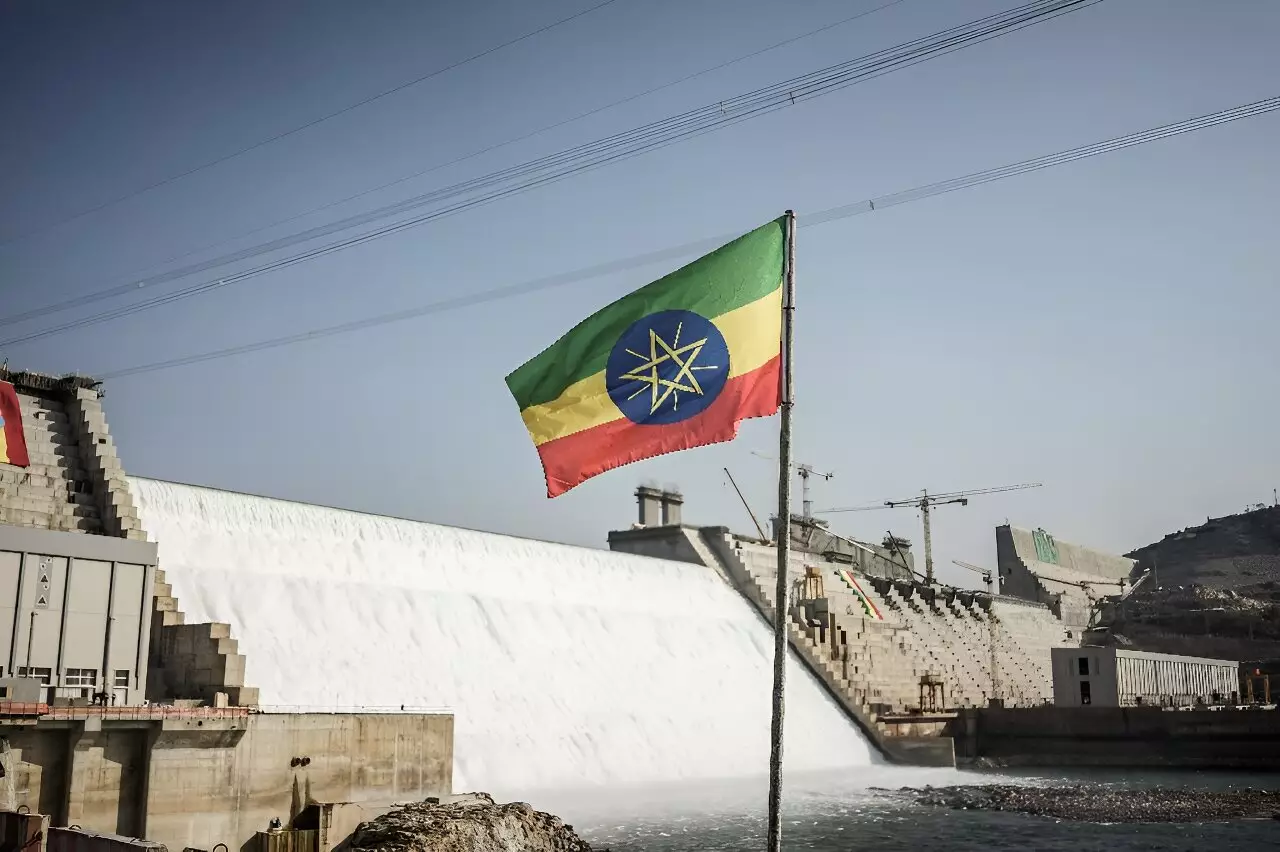

Ethiopia has recently announced that it has more than doubled its electricity production from the Grand Ethiopian Renaissance Dam (GERD) on the Blue Nile. With the addition of two new turbines, the dam is now generating 1,550 megawatts of electricity. This development marks a significant milestone for the controversial multi-billion-dollar project that has long been a source of tension with downstream nations Egypt and Sudan.
According to GERD, the overall progress of the dam has now transitioned from the construction phase to the operation phase. The completion of the concrete dam and the commencement of operations of the two new turbines mark a significant step forward for the project. The additional electricity generated by these turbines, along with the already operational turbines, will contribute to meeting Ethiopia’s growing energy needs.
The GERD has been at the center of a regional dispute ever since Ethiopia began construction in 2011. Egypt and Sudan have voiced concerns about the dam’s operation without a three-way agreement, fearing that it could threaten their access to vital Nile waters. Egypt, in particular, sees the dam as an existential threat due to its heavy reliance on the Nile for water needs. The ongoing negotiations between the three countries have so far failed to reach a breakthrough.
Prime Minister Abiy Ahmed of Ethiopia has highlighted the crucial role that the GERD plays in managing water flow, mitigating flood risks, and ensuring a steady supply of water to downstream nations, especially during droughts. The dam is seen as essential for the electrification and development of Ethiopia, which still has a significant portion of its population without access to reliable electricity. At full capacity, the GERD has the potential to generate over 5,000 megawatts of power, making it Africa’s largest hydroelectric dam.
Despite the benefits that the GERD promises, Ethiopia continues to face challenges in meeting its electricity needs. The World Bank has announced plans to help Ethiopia expand its electricity network and diversify into other clean energy resources such as solar, wind, and geothermal power. However, the electricity deficit in the country remains a significant barrier to economic development, with many people still lacking access to basic socio-economic needs.
The Grand Ethiopian Renaissance Dam represents a significant milestone in Ethiopia’s quest for energy security and economic development. However, the project remains a source of contention with downstream countries and poses challenges in ensuring equitable water sharing arrangements. As Ethiopia continues to harness the potential of the GERD, it must navigate the complex political and environmental landscape of the Nile Basin to realize the full benefits of this ambitious infrastructure project.
In the world of pharmaceuticals, innovation often hinges on finding new compounds that can lead…
In the heart of the Amazon basin, drastic climate changes present an alarming reality that…
Air fryers have rapidly surged in popularity, captivating home cooks and culinary enthusiasts alike. When…
In an era where technology and social media reign, the importance of sleep often takes…
In an era where environmental consciousness is paramount, the maritime industry has long been scrutinized…
Radionuclides, often relegated to discussions surrounding nuclear energy and radioactive waste, have far-ranging implications for…
This website uses cookies.